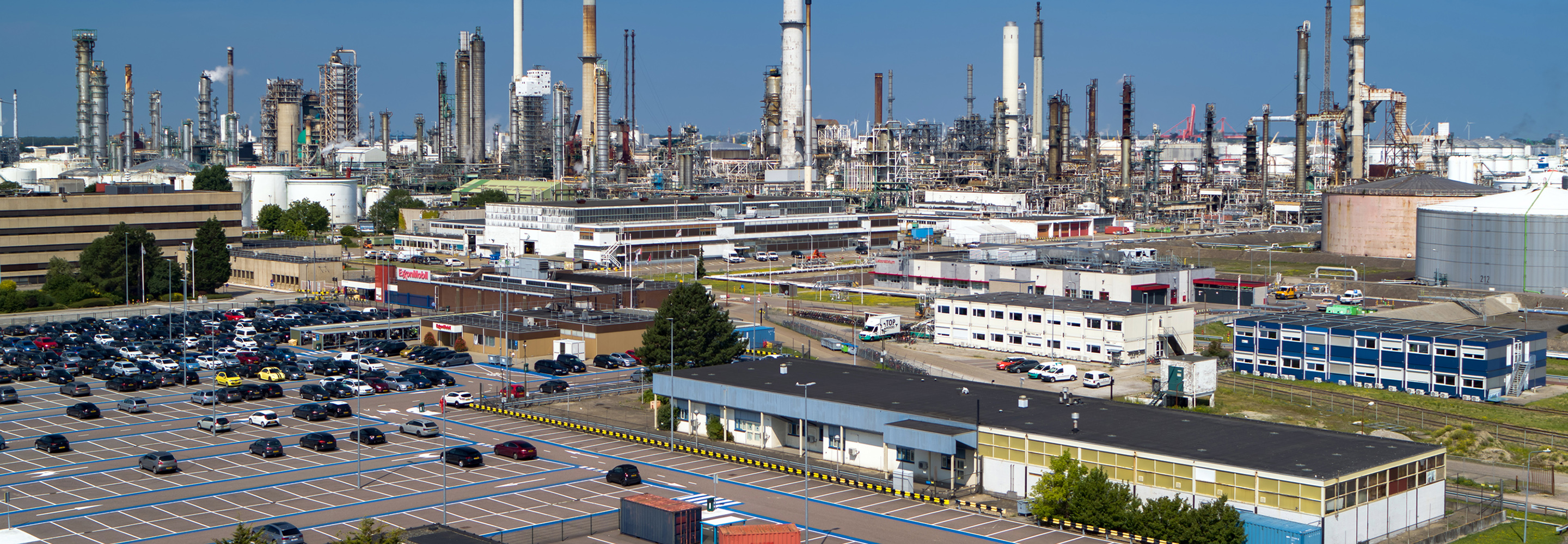selected item

Rotterdam refinery
The refinery processes different grades of crude oil varying from light low-sulphur to heavy high-sulphur oil. The crude oil is supplied by ship and stored at the tank farms on the Maasvlakte and in Europoort. It is transported from the tank farms to the refinery via pipelines where it is processed into a range of products, such as LPG, kerosene and diesel. Thanks to the Flexicoker unit, the refinery has not produced any heavy fuel oil since the 1980s.
Hydrocracker expansion
In 2016, the expansion of the hydrocracker was started. The project involved an investment of over a billion dollars. From now on, the new installation will enable the refinery to produce high-quality base oils for a new generation of lubricants.
Energy efficient
The refinery has its own cogeneration unit (Cogen), which utilises low-calorie gas from the Flexicoker to produce electricity and steam. As a result, emissions of SOx and NOx, dust and aromatics are significantly lower than they are at other refineries. The Cogen provides most of the energy needs of the refinery complex. The new hydrocracker has increased the refinery's energy efficiency by five per cent.
Greater efficiency through integration
The refinery is almost completely integrated with the neighbouring aromatics plant. The refinery supplies the basic raw materials to the aromatics plant, which, in turn, sends by-products back to the refinery for further processing. Since 2011, the refinery has also been integrated with Air Products' ultra-modern hydrogen plant, which is situated on the same site. The hydrogen plant uses residual gasses from the refinery to produce liquid hydrogen. On its turn, the Air Products plant delivers hydrogen and heat (steam) to the refinery. The hydrogen is used to desulphurize oil and to be able to produce cleaner fuels. The integration of different plants has helped optimise energy efficiency and reduced CO2 emissions.
Esso Nederland B.V.
Rotterdam Refinery
Botlekweg 121
3197 KA Rotterdam-Botlek
Havennummer 4060
The Netherlands
Tel.: +31 (10) - 493 5911
VAT number: NL.0010.27.311.B01
Company reg. no.: 27004771
Registered office: Rotterdam
Products:
LPG, naphtha, kerosene, diesel fuel, sulphur, petroleum cokes, various raw materials for the chemicals industry